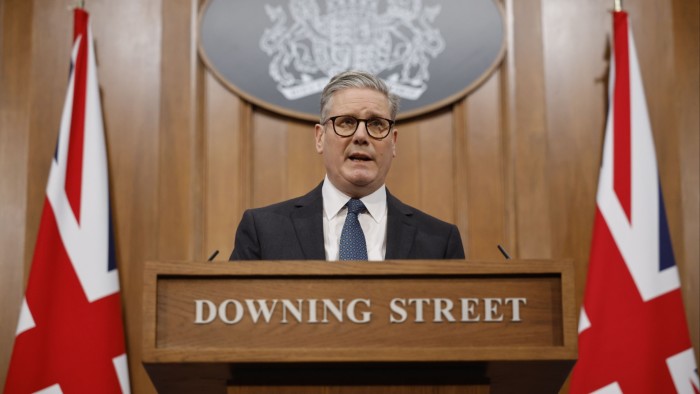Unlock the Editor’s Digest for free
Roula Khalaf, Editor of the FT, selects her favourite stories in this weekly newsletter.
Last summer’s Southport killings will mark a “line in the sand” for Britain, Sir Keir Starmer has said, promising to introduce new terror laws if necessary.
Speaking in Downing Street a day after 18-year-old Axel Rudakubana pleaded guilty to murdering three young girls in the northern town last July, the prime minister said the nature of the terror threat facing Britain had changed.
While previously the main threat had been organised groups with a clear political intent, he said, now the state had to contend with “loners, misfits, young men in their bedrooms” accessing online material focused on extreme violence “seemingly for its own sake”.
If necessary, he said, the law would be changed to deal with that threat.
He was speaking as it became apparent that Rudakubana was known to multiple authorities, including the government’s Prevent counter-extremism programme, which had rejected three referrals by other agencies.
Sir David Anderson KC has now been appointed to “shine a light” into the counterterror system, said Starmer.
A separate public inquiry into the Southport killings will also raise “questions that should be far reaching, unhindered by cultural or institutional sensitivities and driven by the pursuit of justice”, he said.
Addressing criticism from right-wing parties for not disclosing sooner what the authorities knew about the attack and Rudakubana, Starmer said the law “forbade” him from doing so while the justice process was under way.



